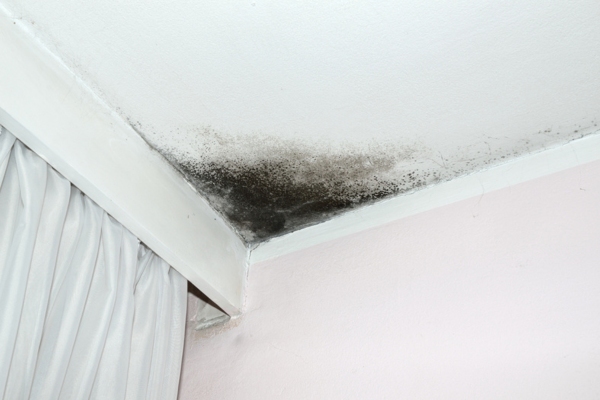Table of Contents
The U.S. Environmental Protection Agency identifies moisture, a nutrient source, and oxygen as the necessary conditions for mold growth. This means that nearly any damp spot in your home could become a breeding ground for mold. Air conditioning systems are particularly vulnerable to these outbreaks. The presence of air conditioner mold is concerning because it can quickly spread throughout your home.
Mold growth negatively affects human and animal health. To protect your family and pets, it’s essential to have a qualified HVAC professional regularly inspect your air conditioning system. This ensures your home cooling system remains mold-free. This article from Lake Region Energy provides helpful information for identifying and managing mold in your air conditioning system.
Best Ways to Prevent Air Conditioner Mold

Mold development in your air conditioning unit can necessitate costly repairs. Home insurance policies usually cover mold damage only when caused by specific incidents, such as appliance-related flooding. Therefore, actively preventing mold in your air conditioner is crucial for your health and a sound financial decision. This article emphasizes the importance of a mold-free air conditioning system and offers practical tips to help you keep your unit in excellent condition.
Safeguard your home and loved ones from mold-related health risks by scheduling a professional inspection of your air conditioning system today. Call Lake Region Energy today!
Why Air Conditioner Mold is Dangerous

Medical News Today reports that while mold in the home may not always pose a severe threat to life, it can profoundly affect health by emitting toxins that compromise the respiratory system. This exposure can cause allergic reactions, respiratory difficulties, and conditions such as aspergillosis. The danger increases significantly when mold contaminates air conditioners. They can disperse readily through your living space, exposing occupants to detrimental spores. Additionally, mold can harm the air conditioner itself. It can infiltrate electrical components, which may decrease efficiency and lead to costly repairs or even complete replacement.
Take proactive steps to keep your air conditioning unit mold-free. Contact Lake Region Energy now for professional HVAC system maintenance. Call now!
Signs of Mold in Your Air Conditioner

Considering the health hazards posed by mold, it’s essential to stay alert for signs that your air conditioner might be hosting this undesirable invader. Mold tends to flourish in the moist parts of an air conditioning unit, making it difficult to spot with the naked eye. The challenge is increased because mold spores are microscopic and generally not visible until they accumulate into larger clusters.
It is recommended to seek the expertise of a professional HVAC contractor to reliably detect mold in your AC, its ventilation system, or other areas of your home. An experienced HVAC professional with the required expertise and familiarity with similar cases can identify mold presence. They are trained to do so even when the spores are microscopic and not visible to the naked eye. Considering this, it is crucial to be aware of specific signs that indicate mold growth within your air conditioning system.
Visible Signs Of Air Conditioner Mold In Your Surroundings
While mold may start as microscopic, it becomes easier to spot as it grows and releases spores. Depending on factors such as moisture, light, and nutrients, mold can appear in various colors like brown, white, black, gray, green, red, orange, and purple. These variations help make mold visible. Be vigilant for any unusual color patches or growths, which could be signs of mold presence.
Musty AC Smell

A musty odor is usually the first and most clear indication of mold or mildew. If you encounter an unexplained musty scent in your home, it’s likely originating from mold within your air conditioner.
Increased Home Humidity
A noticeable increase in humidity levels inside your home while the air conditioner is active might suggest mold growth within the unit. Air conditioners are designed to cool the air and reduce humidity. If mold clogs the system’s components, it can disrupt this function, resulting in abnormally high indoor humidity.
Health Issues
Should your family members or pets start to suffer sudden illnesses when the air conditioner operates, it could indicate mold contamination within the system. Common symptoms linked to mold exposure are sneezing, coughing, watery eyes, wheezing, nasal congestion, itchy skin, and other allergic reactions. Those with asthma might experience more intense symptoms when exposed.
How to Remove Mold from Your Air Conditioner

Due to the complexities and health risks involved in mold removal, it is crucial to entrust this task to a qualified and experienced HVAC professional. Only certified HVAC contractors have the necessary skills and knowledge to effectively and safely handle mold issues in air conditioners. Below are the steps a professional might undertake to address mold in your air conditioning system:
- Air Conditioning System Inspection: The contractor will start by thoroughly examining your air conditioning unit and ductwork. Careful inspection helps them pinpoint the extent and specific locations of the mold growth.
- Assessment of Your Air Conditioner Unit: Once the presence of mold is confirmed, the professional will assess the infestation’s severity. This is necessary to formulate an effective remediation plan.
- Mold Containment: During the removal process, the contractor will implement containment practices to prevent mold spores from dispersing into other areas of your home.
- Air Filtration: Using air scrubbers and HEPA filters is essential to capture airborne mold spores and clean the air.
- Mold Growth Removal: The contractor utilizes specialized cleaning solutions and tools to eradicate mold from the affected air conditioner. This crucial step ensures complete removal on your unit’s parts and ducts.
- Mold Prevention: After cleaning, the contractor might suggest actions to prevent mold recurrence, such as enhancing ventilation, repairing leaks, or installing a dehumidifier.
- HVAC System Maintenance: Consistent HVAC system maintenance is crucial to keep it functioning efficiently and free of mold. By engaging a professional HVAC contractor, you ensure thorough mold removal and prevent its return. They can help protect your home’s air quality and your family’s health.
Experience peace of mind knowing your home is protected from air conditioner mold. Call Lake Region Energy today for top-notch HVAC services.
Tips to Prevent Air Conditioner Mold

Discovering mold in your air conditioner typically indicates that the issue is advanced, potentially having already caused damage. Thus, prevention is key to avoiding the challenges that come with mold infestations. Regular upkeep by a professional HVAC technician helps keep your air conditioning system mold-free. To protect your unit from mold, a skilled HVAC contractor will carry out several important maintenance tasks:
- Disinfecting the AC: Disinfecting the air conditioner, ducts, and ventilation components is essential to maintaining a healthy air system by eliminating mold and other microbes. A professional HVAC contractor will utilize EPA-approved disinfectants to perform this critical task.
- Cleaning & Replacing HVAC Filters: For optimal air quality, clean your AC filter every two weeks or more often in areas with high pollution levels. As the U.S. Department of Energy advises, replacing the filter every 45 to 90 days is essential for maintaining system efficiency. A skilled HVAC contractor can best manage this task to ensure thorough and effective maintenance.
- Applying a Mold Inhibitor: A mold inhibitor is a specially formulated chemical solution designed to prevent the growth of mold and mildew in your system.
- Keeping Air Ducts Dry: Moisture in air ducts creates a conducive space for mold and mildew growth. To prevent this, your HVAC contractor will ensure the ducts remain dry by thoroughly cleaning them, addressing necessary repairs, and replacing any water-damaged components.
- Installing a UV Light: Installing a UV light in your air conditioning system offers a potent preventive measure, as UV light can neutralize almost all types of microbes, effectively helping to prevent mold growth within the unit.
Conclusion
Mold in air conditioners is a severe threat to the structural integrity of your home and the health of everyone inside. To protect your living environment and ensure the well-being of your household, it’s essential to employ a reputable HVAC technician. Arrange appointments for regular inspections and maintenance of your AC system. A certified HVAC professional can also offer expert guidance on effective measures to prevent mold growth. Their expertise can help keep your home safe and healthy.
Contact Lake Region Energy for Expert Air Conditioning Services
At Lake Region Energy, we are committed to delivering premier heating and cooling solutions throughout Maine and New Hampshire. Our team consists of highly skilled, professionally certified technicians dedicated to providing exceptional HVAC tune-ups, repairs, installations, and replacements. With their extensive knowledge and experience, our technicians ensure your HVAC unit operates at peak efficiency.
Lake Region Energy is dedicated to offering the most competitive prices for HVAC services in the region. Our comprehensive maintenance services can aid in enhancing your comfort, boosting energy efficiency, and minimizing cooling expenses for your home. Should you require HVAC repair or a system upgrade, we can recommend the most suitable options that align with your needs and budget. We stand behind our work with a solid satisfaction guarantee. To arrange an air conditioner tune-up or service consultation, don’t hesitate to contact Lake Region Energy today. We also provide free in-home estimates.
For more information about our fuel deliveries and HVAC services, be sure to contact Lake Region Energy. You can click here to contact us, or you can call us at (207) 839-5500 to find out more. We offer a full line of heating and cooling repairs, maintenance services, and installations. Click the link to view our service area.

Related Articles:
- Proper Air Conditioner Care: Avoid These 3 Habits to Preserve Your Unit
- Maximizing Your Investment: Lifespan Expectations of Ductless Mini-Split Systems
- Unlocking the Mysteries of Air Conditioning: Unveiling Fascinating Insights
- Understanding Air Conditioner Condenser Rust: Essential Insights & Tips
- Beat the Heat: Typical Air Conditioner Problems to Watch Out for This Summer
